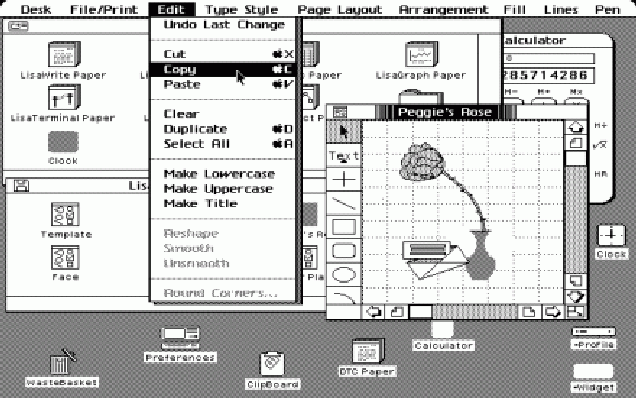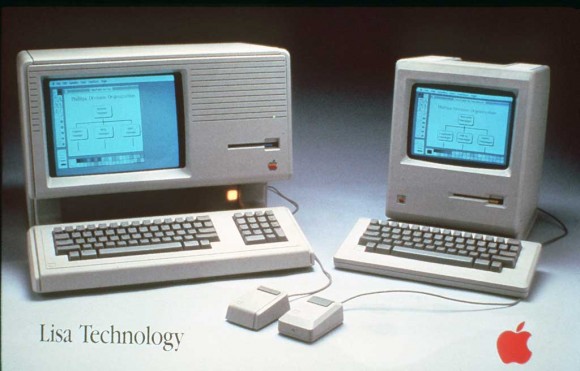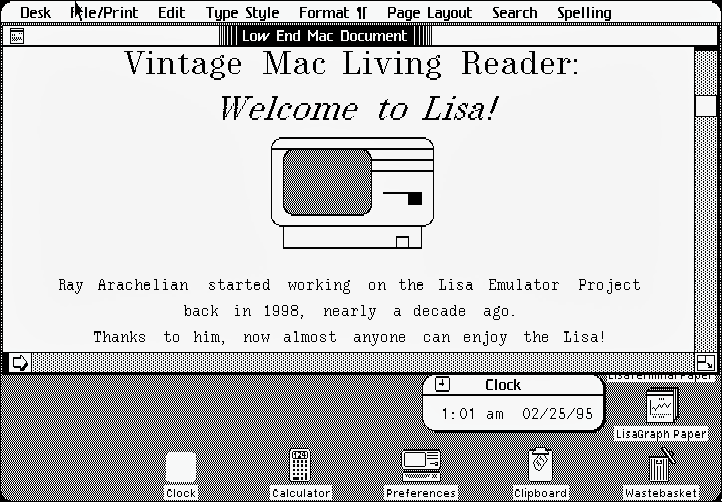

- #Mac lisa emulator drivers#
- #Mac lisa emulator driver#
- #Mac lisa emulator code#
- #Mac lisa emulator mac#
The current hardware version is Floppy Emu Model B. Just plug in the Emu board, and you’ll be up and running in seconds. It's perfect for booting your favorite games, moving files between modern and vintage machines, and troubleshooting a computer without a working OS.
#Mac lisa emulator drivers#
The Emu behaves exactly like a real disk drive, requiring no special software or drivers on the computer.

It uses a removable SD memory card and custom hardware to mimic an Apple floppy disk and drive, or an Apple hard drive. INTRODUCTION Thank you for purchasing a Floppy Emu disk emulator! Floppy Emu is a specialized floppy and hard disk emulator for classic Apple computers. Universal Adapter for Floppy Emu Model A 5.25 Inch Floppy Disk Emulation 3.5 Inch Floppy Disk Emulation Smartport Hard Disk Emulationġ. Macintosh Usage 9.1 Floppy Disk Emulation 9.2 Hard Disk Emulation 10. Connection Method 7.1 Hot-Plugging 7.2 External Connection 7.3 Internal Connection 8. Disk Images 6.1 Working with Disk Images 6.2 DiskCopy 4.2 Image Files 7. You are likely right that it could, in theory, be built on multiple floppies, but I haven't tried.FLOPPY EMU DISK EMULATOR For vintage Macintosh, Apple II, and Lisa computersġ.
#Mac lisa emulator code#
The code dump that enabled this to happen is actually the kit that Digital Research sent out to OEMs to help them port 68k GEMDOS to new hardware, but the whole development toolchain was hosted on a Lisa. (In fact, EmuTOS is partly based on the source code dump that I also used in this project.)īut this is self-hosting, it will compile on a Lisa, if it has a hard disc. EmuTOS is close enough to old GEMDOS that it will still run the old and cranky Digital Research compiler suite, and produce output that works. a host filing system so I can use an editor I actually like).
#Mac lisa emulator mac#
I don't actually compile the code on Lisa I use an Atari emulator running EmuTOS on my modern Mac to compile it, just because that way I get the quality of life improvements of modern emulators (e.g. GEM doesn't care about the ProFile/Widget distinction, though, and just displays "ProFile" regardless of what drive is actually there. My computer is a Lisa 2/10, though, which actually has an internal "Widget" hard disc (although mine has a solid state replacement, because I know where my skills end, and they definitely end before fixing a hard disc's moving parts). The ProFile does refer to the hard disc, yes. GEM runs on top of it just fine, and even though it's an early version, some early Atari software works adequately, if it's well behaved. I combined all of this lot (which sounds a lot easier than it was,given that I knew nothing about either the Lisa's hardware or the innards of GEMDOS at the start of the project) and now, probably for the first time since the '80s, GEMDOS for Lisa can be built from source again and can be installed on a hard disc.

But source code and a mostly functional build system for other versions of GEMDOS, which actually got released, were also open sourced, some much-better-at-this people in the Lisa community had built things like code to talk to the internal hard disk in the Lisa 2/10, and it turns out you can run the old Digital Research compiler suite (which is horrible) under EmuTOS under a modern Atari emulator.
#Mac lisa emulator driver#
People have previously got the binaries in this kit running (it's basically a self-hosting development environment on a Lisa), but nobody as far as I know had been able to build them from source, and the hard disc driver didn't seem to work. (Parenthetically, every so often one hears a garbled story that GEM is the descendant of the Lisa this is where that story comes from.)

When GEM was open-sourced back in 2001ish, this porting kit was one of the things that was released. When Digital Research were porting GEM/GEMDOS to the 68000, they used the Lisa as an example platform, and distributed the source code for the Lisa-specific bits of GEMDOS in their "porting kit". There was at least one more OS ported to it, though, which never got an official release. As far as I know four were released for it, being Lisa OS, MacWorks (which allows running the Macintosh System Software), and UniPlus and Xenix, both being UNIX variants. The Apple Lisa differed from the Mac partly in that it was designed to be able to run multiple OSes. I thought people here might be interested in my last big(ish) project, even though it's not Acorn related.


 0 kommentar(er)
0 kommentar(er)
